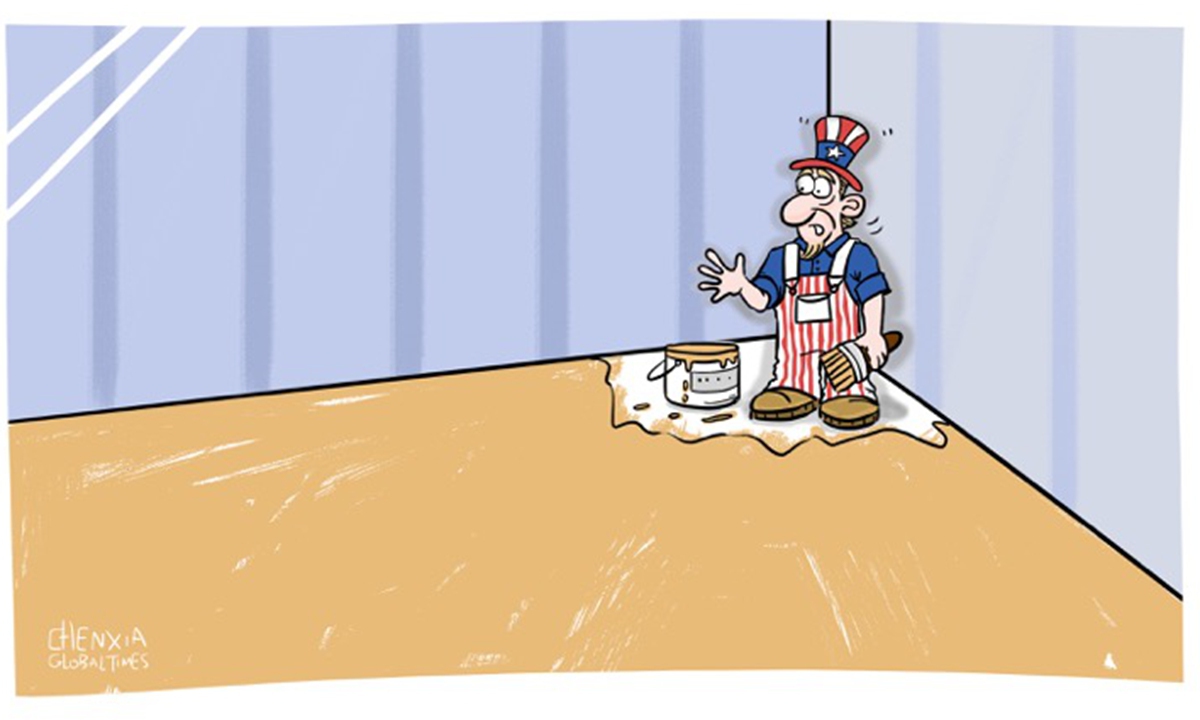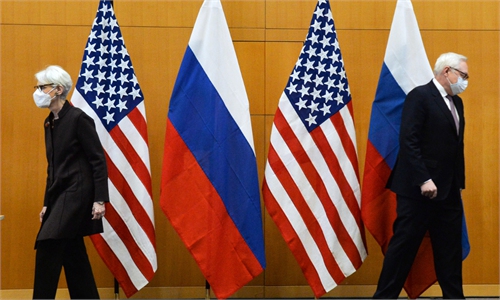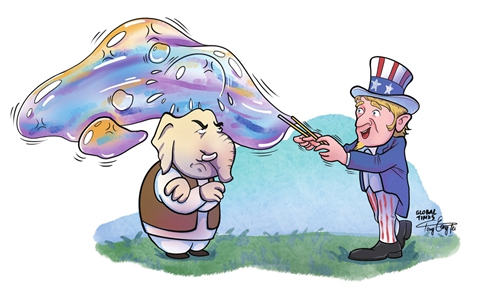
Illustration: Chen Xia/GT
At the White House press briefing on Monday, when a reporter asked how the US will respond to the China-India border dispute, White House Press Secretary Jen Psaki said China attempts to "intimidate its neighbors," and the US will "continue to stand with our partners."Such trick of calling black white and fanning the flames is really a despised "smart power."
China and India will hold the 14th round of military commander-level talks on Wednesday. Tensions have eased and the atmosphere ahead of the talks is also positive. Aren't the two countries now engaged in settling disputes by dialogue and peaceful means that the White House says it supports? It has been found that the White House always has duplicity, and sowing discord has become a routine of Washington.
Aren't the Indians themselves clear whether China has intimidated India? Do they need the deliberate "reminder" of the US? Since the China-India border standoff, China has always exercised restraints and it never "speaks from a position of strength" as the US would do.
China firmly safeguards its territorial sovereignty, but will never encroach on one inch of others' land. China is devoted to promote constructive solutions to this issue. Such a manner has always been open, transparent, and upright. Where does the "intimidation" come from?
Arguably, China is the most restrained big country when it comes to using hard power. Imagine how India would be treated if the border dispute was between India and the US. Just take a look at Mexico - More than half of its territory has been ceded to the US.
India's nationalist sentiment has risen in recent years due to multiple reasons, leading to some radical moves in its China policy, which was the backdrop for the recent border frictions between China and India. But India is, after all, a big country that pursues an independent foreign policy. It hasn't gone that far and lost its strategic judgment. Proof for both sides' sobriety and rationality is the fact that both Chinese and Indian armies have chosen to step back from the intense border standoff to the negotiating table. However, this is clearly not what the US would like to see.
Washington has tried to drive a wedge in China-India relations in a direct way, showing malice toward Beijing and disrespect for New Delhi. This shows that, in Washington's view, New Delhi lacks basic judgment and has to be taught by the US to identify the good from the bad. This is obviously a humiliation for a big country like India.
Washington's politicians are like talebearers. They are not only enjoying doing so but also trying to verbally drive wedges around China. They want to reach the geopolitical goal of isolating China at the lowest cost, or even without any cost. This is the narcissistic example of "one thinking himself the cleverest."
Coincidently, some US media outlets have recently reported that "China and Russia are competing for a sphere of influence in Kazakhstan," claiming that Russia's "intervention" has concerned and even shocked China with a possibility of marginalizing China in Central Asia. They said some of China's measures will irritate "regional hegemonic Russia." Such fiction is prevailing in the US and the West.
Even American experts have to admit to the fact that their wishes to see a breakdown in China-Russia relations due to Central Asian affairs has gone in vain. Instead, the two giants' cooperation has been further consolidated. Russian President Vladimir Putin has slammed the "China threat" theory hyped by the West.
"People have been trying to spook me and intimidate me with China starting in the year 2000. Since then, those who tried to spook me, they got afraid themselves and tried to change their policies towards China," Putin said at the 13th Annual Investment Forum "Russia Calling!" in December 2021.
Washington has been attempting to instigate a conflict between China and its neighboring countries. The political elites in Washington do not believe China and Russia can retain a long-lasting and stable relationship, and they think a war will inevitably break out between China and India. They measure major power relations with a zero-sum mentality and apply their own experience of "a powerful country is bound to threaten its neighbors" to think of others.
But the reality tells a different story. China-Russia relations have entered their best period in history. China and India generally remain rational and restrained. While those policy elites cannot believe it, they just try every possible means to make a fuss from tiny issues. Their ridiculous mania has come to the extent of collective hysteria.
It is high time that the US' geopolitical self-obsession come to an end. It has tried to fool the other major powers like monkeys, and treated small countries like bananas to tame the monkeys. Washington wants to repeat the abandoned Cold War fantasy, but when it wakes up, it will find that the circus has dissolved, with no audience left.



